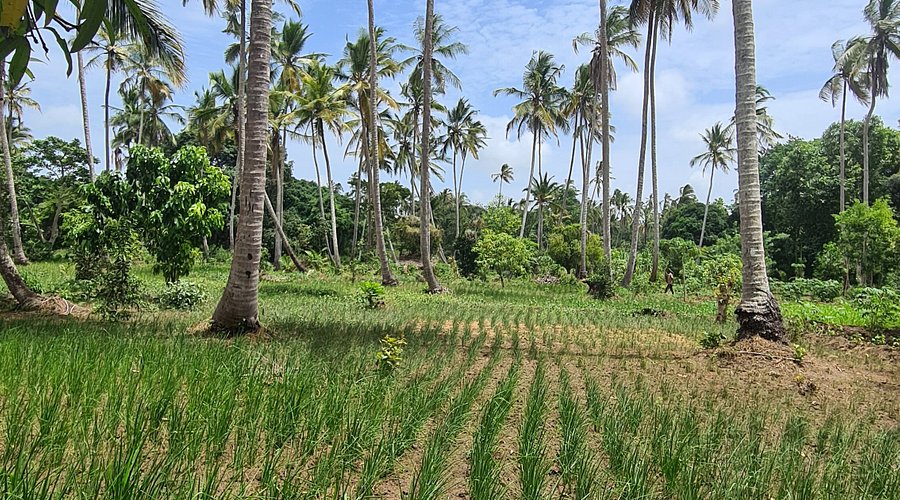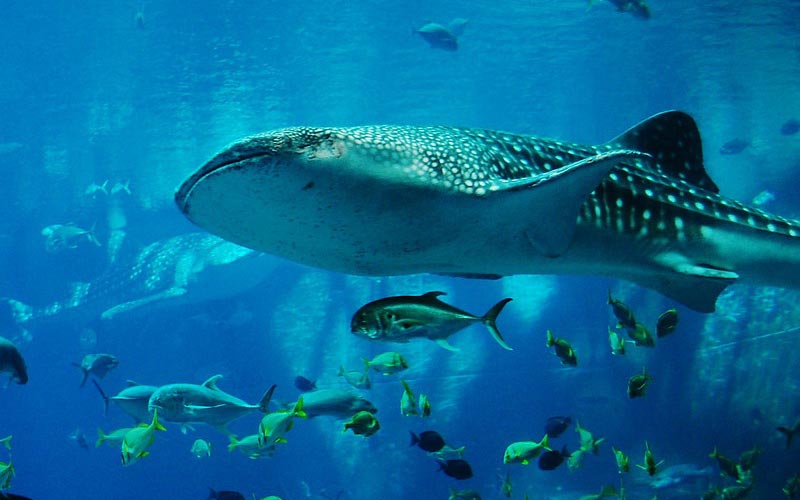Zanzibar: A Spice Island Dream with a Conscience

The balmy air hit me like a silken curtain as I stepped off the plane at Abeid Amani Karume International Airport. It was the golden hour, that magical time when the Tanzanian sun dips towards the horizon, painting the sky in hues of orange, pink, and gold. The vibrant colors of the kanga cloths worn by the local women added another layer to this sensory feast. I raised my camera, a Leica Q2, and captured the moment – the sharp details, the rich colors, the very essence of Zanzibar unfolding before me. I knew this trip, taken for VistaLocation.com, wouldn’t just be about showcasing beauty; it would be about exploring the soul of this Spice Island with a conscience.
Aromatic Adventures: Kidichi Spice Farm
No trip to Zanzibar is complete without immersing yourself in its spice heritage. I chose to visit Kidichi Spice Farm, eager to witness firsthand the source of those intoxicating aromas that define the island. Stepping onto the farm was like entering another world. The air, thick with the scents of cloves, cinnamon, nutmeg, and vanilla, was almost palpable. Sunlight dappled through the dense foliage, creating an ethereal glow.
I wandered through the verdant landscape, my camera (now equipped with a wide-angle lens) working to capture the breadth of the plantation. Our guide, a local farmer named Juma, expertly pointed out each plant, explaining its traditional uses and the intricate process of harvesting. He showed us how cloves are picked, how cinnamon bark is carefully peeled, and how vanilla orchids are pollinated by hand. The lighting within the plantation created stunning contrasts, perfect for capturing the deep greens of the leaves against the rich browns of the spice barks.
Underwater Paradise: Snorkeling in Mnemba Atoll
The next day, adventure beckoned in the turquoise waters surrounding Mnemba Atoll, a protected marine area renowned for its exceptional snorkeling. The boat ride out was exhilarating, the wind whipping through my hair as we sped towards the tiny island. Slipping into the water was like entering another dimension. The visibility was incredible – at least 30 meters, allowing me to see a kaleidoscope of marine life in stunning clarity.
The water temperature was a perfect 28°C, and a gentle current carried me along as I explored the vibrant coral reefs. Schools of clownfish darted in and out of anemones, parrotfish grazed on algae, and angelfish flashed their iridescent colors. I used my GoPro to capture the underwater spectacle, highlighting the clarity of the water and the intricate details of the coral formations. The light reflecting off the surface created a mesmerizing effect, adding to the overall sense of wonder. A private snorkeling tour ensures minimal disturbance to the delicate ecosystem.
Stone Town's Storied Streets
Stone Town, a UNESCO World Heritage Site, is a labyrinth of narrow streets, bustling markets, and historical landmarks. I spent a day wandering through its maze-like alleys, marveling at the unique blend of Arabic, Persian, Indian, and European architectural styles. The House of Wonders, with its grand balconies and intricate carvings, stood as a testament to Zanzibar's rich history. The Old Fort, a former Omani stronghold, offered panoramic views of the city. And the Forodhani Gardens, a waterfront park, buzzed with activity as vendors prepared their evening feasts.

The Darajani Market was a sensory overload. The air was thick with the aroma of spices, the sounds of vendors hawking their wares, and the sights of colorful fabrics and exotic seafood. I used architectural photography techniques to capture the details of the buildings and doorways, the soft light filtering through the narrow streets adding depth and texture to my images. The overall mood was lively, bustling, and undeniably vibrant. I made a point of buying directly from the artisans, ensuring my money went directly to supporting their craft.
Zanzibari Pizza: A Culinary Adventure
As dusk settled over Stone Town, I found myself drawn to the Forodhani Gardens, where the aroma of street food filled the air. I couldn't resist trying the famous Zanzibari pizza, a local delicacy unlike anything I'd ever tasted. The preparation method was fascinating: a thin dough stretched to its limit, filled with minced meat, onions, peppers, and a generous dollop of mayonnaise, topped with an egg cracked right on top, and then cooked on a hot griddle. The explosion of flavors was incredible! The string lights above provided ample lighting, allowing me to capture the freshness of the ingredients with my camera.
Dining on a Rock: The Rock Restaurant
For a truly unforgettable dining experience, I ventured to The Rock restaurant, perched on a small rock island in the Indian Ocean. The setting was breathtaking, the views stretching out to the horizon. The restaurant itself was charming and intimate, and the fresh seafood was exquisite. I savored grilled prawns and a flavorful fish curry, each dish expertly prepared and beautifully presented. The sea spray added to the unique atmosphere, and the golden hour light cast a magical glow across the water, making it a photographer's dream.
Swahili Coffee: A Taste of Tradition
My journey wouldn’t have been complete without experiencing the warmth of Zanzibari hospitality and the rich tradition of Swahili coffee. I visited a local village and was welcomed into a family’s home, where I learned about the traditional brewing process. The coffee beans were roasted over an open fire, then ground by hand using a mortar and pestle. The aroma was intoxicating – strong, earthy, and slightly bitter.

The coffee was served in small, traditional cups, and I sipped it slowly, savoring the rich flavor and the genuine connection I felt with the local people. The soft, warm light of the traditional kitchen created a cozy and inviting atmosphere, perfect for capturing the textures and details of the brewing process with my camera.
Travel with a Conscience: Ethical Considerations in Zanzibar
Zanzibar, with its undeniable beauty, also faces challenges. It's crucial to acknowledge the ethical considerations of tourism and strive to minimize our impact while maximizing the benefits for local communities. Supporting local businesses is paramount – from choosing locally owned hotels and restaurants to purchasing handicrafts directly from artisans. Respecting local customs and traditions is equally important – dressing modestly, asking permission before taking photos, and being mindful of cultural norms.
Minimizing environmental impact is also essential. Choosing eco-friendly accommodations, avoiding single-use plastics, and participating in responsible tourism activities can make a significant difference. There are several sustainable tourism initiatives in Zanzibar, such as Chumbe Island Coral Park, a private nature reserve dedicated to protecting the pristine coral reef ecosystem, and eco-lodges that prioritize environmental conservation and community development. Avoiding exploitative tourism practices, such as wildlife encounters that harm animals or cultural performances that disrespect traditions, is crucial. Luxury Zanzibar Spice Island Escape
A Call to Responsible Action
Zanzibar is a destination that captivates the senses and nourishes the soul. But its future depends on our collective commitment to responsible travel. By supporting local communities, respecting the environment, and embracing sustainable tourism practices, we can help preserve the beauty and culture of this Spice Island for future generations. Let's travel with a conscience, ensuring that our visit leaves a positive impact on the people and the place we've come to admire. I encourage you to explore Zanzibar, but to do so thoughtfully, respectfully, and with a genuine desire to contribute to its well-being. Consider booking your trip through VistaLocation.com, where we prioritize ethical and sustainable travel experiences, helping you to discover the world in a meaningful way.